Working Remotely: Productivity Tips From The Hunter Team
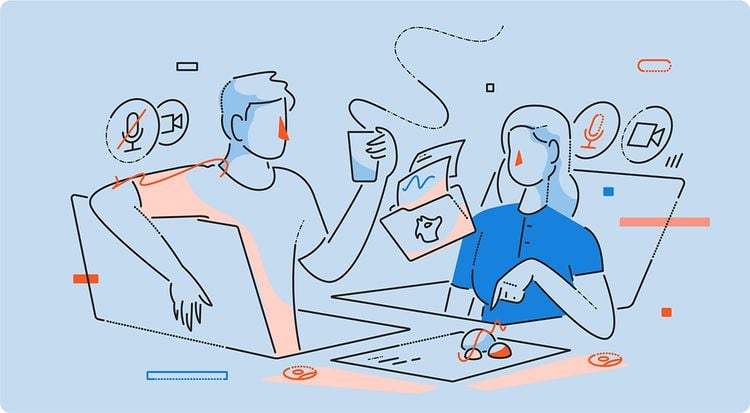
Sometimes, people are surprised when they discover Hunter has more than 2 million users but is managed by less than a dozen people.
It’s possible because we purposefully built the company that way. We make sure to keep our product as simple as possible to limit the need for customer support. We develop features only when we have carefully validated they can help a large number of users. And we focus only on the few most relevant channels in marketing.
But staying a small team is also possible because we are doing our best to spend our time productively. Remote work is an opportunity for each one of us to work in the conditions that are best for them.
We asked the team if they had productivity tips they wanted to share. Here is what they said.
Juliette, Customer Success, Sutton, Canada

There’s no doubt remote work comes with significant advantages. However, with all the perks, also comes the increased personal responsibility. Here I’ll suggest a few tips and tricks that help me stay focused and happy while doing remote work.
Work environment
One of the most important things is to make sure that your work environment is perfect for you. Here are a few key things that I try to keep in mind.
First, I set up a dedicated workspace at my house. I made sure I have everything I need easily accessible and tidy.
I bought a pair of noise-canceling headphones, which I absolutely love. It’s great for focus, I use it with and without music, depending on my mood.
Even though I set up an office space dedicated to work, I sometimes also go elsewhere to work. Changing your environment once in a while can stimulate thought and boost productivity. I have personally found that being in a cozy spot can improve my mood and thus make me more empathetic towards customers. Some of the cozy spots include the couch, or even my bed (but I never work from bed in the morning!). These places aren’t great for posture, however, so I never stay there long.
Work method
With remote work, you have to prioritize your tasks and keep yourself focused.
Often, I use the Pomodoro technique to help me with this. While doing a customer support job, it’s easy to let all the little tasks and incoming requests distract you. When I start a Pomodoro, I choose a specific goal that I will carry out for the next 25 minutes. This removes the need to make micro-decisions, which can surprisingly take up a large portion of your day.
Lastly, I would say that it’s essential to always be ready to improve your methods if you find that something isn’t working out as you had hoped.
Giovanni, Customer Success, Piacenza, Italy
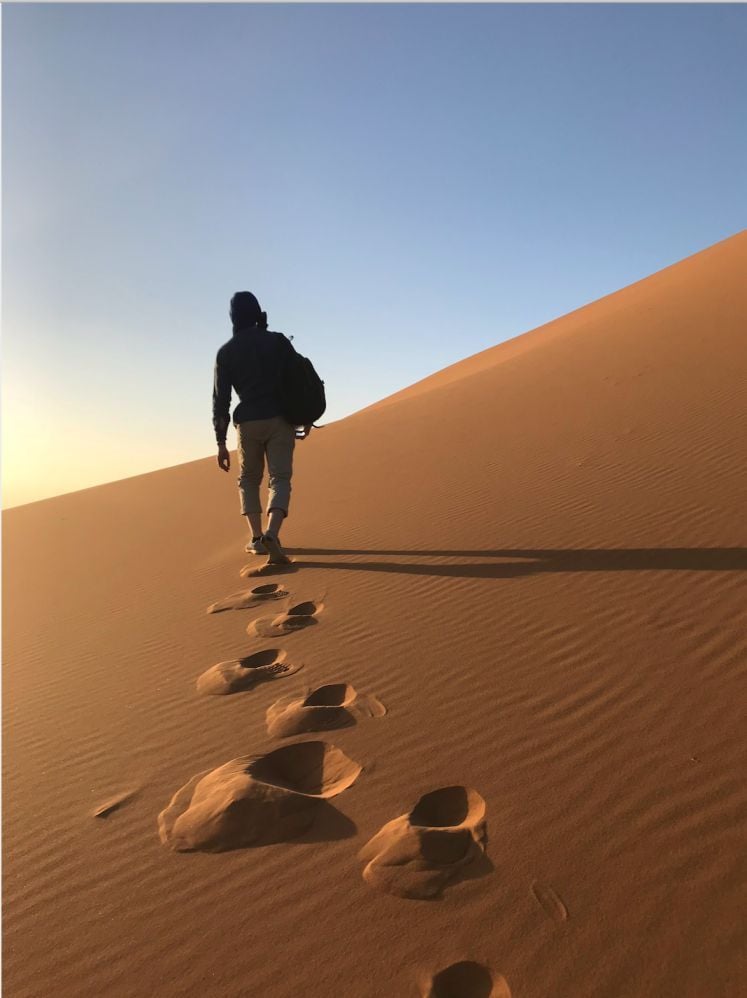
Before joining Hunter 4 years ago, I used to work in a nine-to-five job for a time tracking company.
I was obsessed with tracking my daily to-dos and afraid of not doing enough as the office I was working in had too many distractions and I struggled to achieve deep work sessions.
Switching to a remote job was a game-changer in terms of productivity and better work-life balance, although the transition wasn't that immediate. Here're 3 tips to stay productive while working remotely:
Set an end time for your day and take breaks
During the first months at Hunter, I struggled to say "stop".
I used to wake up at 6 AM, quick coffee for breakfast, 10 min lunch in front of my laptop and kept working until 7 PM.
Thanks to my partner and my colleagues, I gradually switched to a healthier workday:
- I always eat in the kitchen (my laptop and smartphone should not be involved);
- 3 PM is coffee break time: stepping away from my office for 15 minutes helps regain focus and refresh my mind before tackling the last tasks of the day;
- I never work after 6 PM: setting a deadline allows me to organize the day better and dedicate time to my personal life.
Don't be afraid to take some time off
If I don't feel very productive for multiple days in a row, I try to take some time off.
A long weekend can be enough to recharge my batteries, although I always schedule a 2-week vacation in a faraway country every year. It helps me to relieve stress and come back to work with more energy and motivation.
Choose the right music
I rarely work without music and, when I do, I feel that something is missing.
I've created some unintentional connections between some genres and the tasks I'm performing. When replying to customers' chats and emails, for example, my locus amoenus is reached by listening to lo-fi and ambient music.
Every time I find a song that can give me a productivity boost, I add it to my Working Concentration playlist.
Bastien, Software Engineer, Grenoble, France

I’ve been working remotely for four years now, which permitted me to experiment with a lot of good practices and tips to improve productivity. Though, in the long run, I found out that two of them had an impact on my work.
Organize your time wisely
When you work remotely, you don’t have to follow the 9 to 5 workday, or at least you don’t have a lot of appointments (i.e. meetings, coffee breaks). For this reason, you can organize your time the way you want, which can be a game-changer in terms of productivity.
For example, I found out that I was better at tackling infrastructure-related challenges at the beginning of the week, so I keep the development ones for later. I also noticed that I’m an “anti-Pomodoro” person: 3 hours work sessions, with a non-related work break between (to eat, practice a sport or go out) is definitely how my productivity reaches its best.
Finally, I accepted there are days when things just don’t go as expected: in that case, I know it’s really beneficial to stop sooner and postpone to the following day. No need to insist too much: I may only bring frustration and stress!
Take the best of each place you can work from
In my early days at Hunter, I used to spend one week per month in a foreign city/country. Now that I’m a dad, it’s no longer possible, but I kept the habit of changing places depending on the work I want to perform:
- From my home office for infrastructure issues, meetings, and pair coding sessions, as those tasks require quietness and a great Internet connection;
- From my living room for tasks that require some thinking and creativity;
- From a coworking space/coffee shop for well-defined, no human-interaction needed development tasks; having people ordering their coffee while I’m deep into coding strongly increases my focus.
Changing places regularly helps me to keep a pace and a focus that I wouldn’t have if I was always working from the same desk.
Irina, Head of Marketing, Kyiv, Ukraine

Three years ago, I quit my 9 to 5 office job and started working remotely. From that time, I never regretted this decision: I boosted my productivity, started traveling more, and improved the work-life balance.
Here are the tips that help me to be more productive while working remotely:
Do longer breaks outside
I’m one of those who prefer working 3-4 hours in a row without interruptions, and then do a longer break (1-2 hours). During the breaks, I switch to a completely different activity that helps me to recharge.
I usually take a short walk to the park, drink coffee with a croissant, and just enjoy the time outside. One of the important rules I try to stick to is not spending too much time on my phone or social media during the break since the time flies much faster, and it doesn’t help the brain to rest.
Change work environment
I noticed that сhanging work environment helps me to improve my work productivity.
When I have a big project or tasks that take time and concentration, I prefer working from home where it’s quiet and peaceful. It allows me to concentrate and a map out a project plan that will be successful.
At the same time, when I have a lot of small and routine tasks, I’m more productive working from the coworking space. The buzz, all the busy people around, and its atmosphere helps to do more in less time.
I also experimented working from the cafes but figured out that it’s something that doesn’t work for me. All of the people who are eating, speaking loudly, and moving around the place is a huge distraction factor.
Do sport on a regular basis
I usually go to the gym or do yoga at home 3-4 times a week. I noticed that sport has a significant positive effect on productivity, motivation, and a better mood. Having exercises in the morning helps to release endorphins, which gives a lot of energy for the body.
One of the apps I found useful to do exercises at home is the Nike Training Club, which has a lot of workouts for different levels and muscle groups.
François, Co-Founder, Chiang Mai, Thailand

Write a to-do list every day, and do it on paper
My best productivity tool is a good old sheet of paper. Every day, I write the few tasks I intend to accomplish and keep this sheet of paper on my desk.
Why does it matter to have it on paper? Because this is something I can always have under my eyes and is hard to be distracted from, while it’s easy to keep a productivity app behind.
I also found that I better keep my tasks in mind if I write the tasks in the evening the day before. When I wake up, I immediately have tasks in mind and start with a stronger focus in the morning.
Break smartphone addiction
Improving my productivity also means dealing with one of its worst enemies: my smartphone. I took multiple measures to make sure it doesn’t interrupt me when I’m working, and avoid the temptation to check it out without purpose.
I started with the obvious, by deactivating almost all the notifications. Unsurprisingly, I haven’t been missing them. But this wasn’t enough to break the addiction pattern. Here is what I did to even further reduce the number of time I pick it up:
- I moved the place where I charge it far from my desk. Of course, this place is also far from my bed. The worse thing I want is to start my day scrolling my Facebook feed.
- I’m making sure to use alternate objects when possible. For example, I never use my phone to look at the time anymore.
Instead, I’m setting a moment during the day when I can use it freely. This way, I don’t feel I’m constraining myself. But I’ve managed to eliminate the costly interruptions.
Antoine, Co-Founder, Berlin, Germany
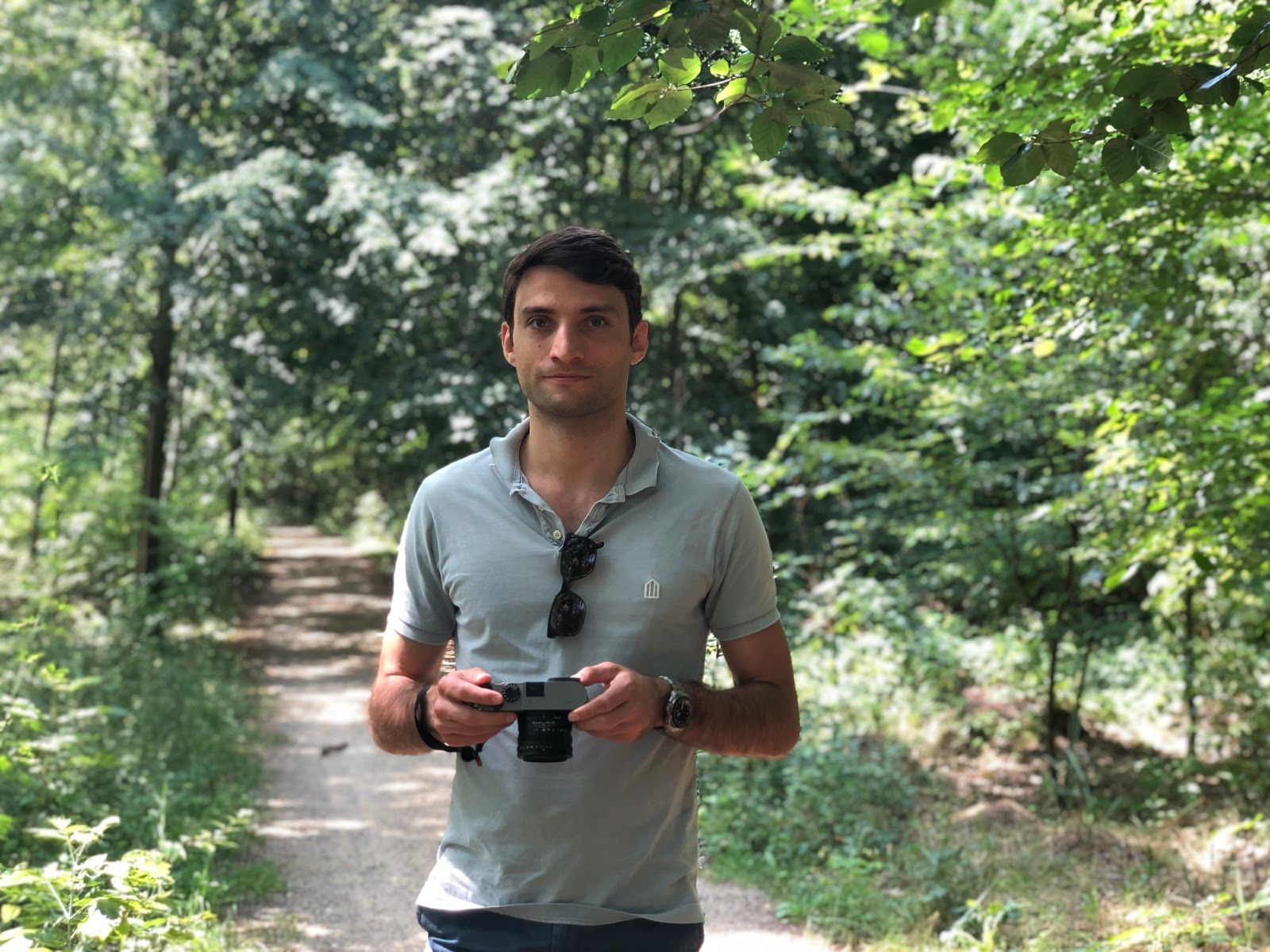
Regular work offices have many downsides, but they usually provide a few advantages workers don't necessarily think about: abundant light and proper ventilation.
Bad air quality is invisible and can have a strong negative impact on your productivity. In particular, CO2 levels over 1000ppm can lead to drowsiness, poor concentration, and sleepiness. This is a frequent problem for people living in some new apartments that are great for retaining heat but fail at getting enough fresh air to the inside when windows are closed.
If you're regularly feeling those symptoms, it's worth studying. They are some great CO2, or general air quality monitors out there. I use the Awair which provides detailed readings over time. The device continually displays a score to let you know if something's wrong.
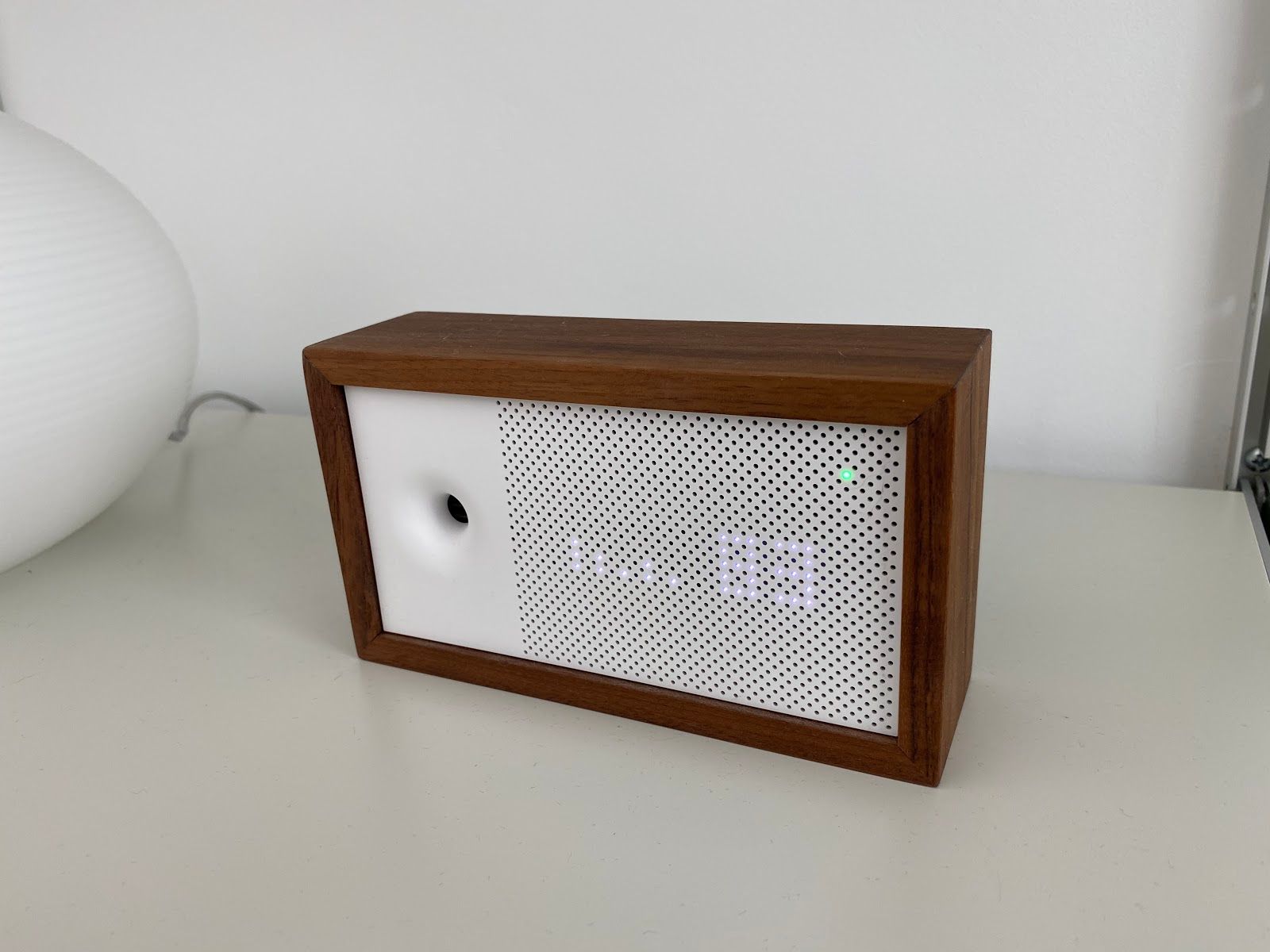
Having enough lighting is crucial to stay alert and productive and is often neglected in home offices. If you're living in a generally sunny place, this might not matter but if like me; you live in northern Europe, you work most winter days when it's dark outside, which can have a substantial impact on your morals.
It sounds simple, but installing strong lights had a strong positive influence on my productivity and morale during the darkest months of the year. In practice, I found indoor lights levels of at least 1000 lux are ideal.
To make this happen, you might have to increase the number of bulbs and even use a few with a higher intensity. Smart lighting could be helpful as it removes the hassle of turning all those lights manually on and can also help you get the right color temperature.
Julien, Software Engineer, French Alps

Remote working has always been an outstanding productivity boost for me. To make the most of it, I’m regularly finding out new little tips that help me avoid losing focus when working from home.
Strict discipline to avoid burning out
As far as I’m concerned, the most dangerous trap when working from home is to burn out. As there’s no commute time, no colleagues to have a break with, and no official lunchtime, it’s very easy to be working non stop from 8 am to 7 pm with almost no break.
To avoid that, I have stringent rules:
- No PC/phone in the morning during the breakfast and in the evening once I stop working;
- At least a 1h lunch break, without PC/phone;
- If the day has been especially intensive, not hesitate to stop working earlier;
- Deal with communication with colleagues in bursts: answer communication all at once during a limited period of time, and then once done turn off notifications for a while to focus on productive work.
Pomodoro method
When not in a meeting (and, good news, we try to avoid meetings as much as possible at Hunter!), I’m implementing the Pomodoro method (a 5 min break every 20 min, a 20 min break every 4 breaks).
These short breaks should always be used to stand up and stop watching screens. It’s a great opportunity to clean the dishes, clean the floor, have a walk in the sun outside.
The key here is that you’re not disconnected during these breaks as you keep thinking about your ongoing task. It’s often a great way to see the bigger picture and adapt what you were doing before the break.
And of course, it’s an excellent way to keep being focused by not falling asleep in your chair!
Sport during lunch break
Twice a week, I’m trying to take a more extended lunch break that allows me to do physical activity (about 1h30 to 2h): cross country skiing, hiking, or cycling. It’s usually giving me a lot of energy for the afternoon as, as far as I’m concerned, I’m generally much more productive during the morning.
Bernardo, Software Engineer, Aveiro, Portugal
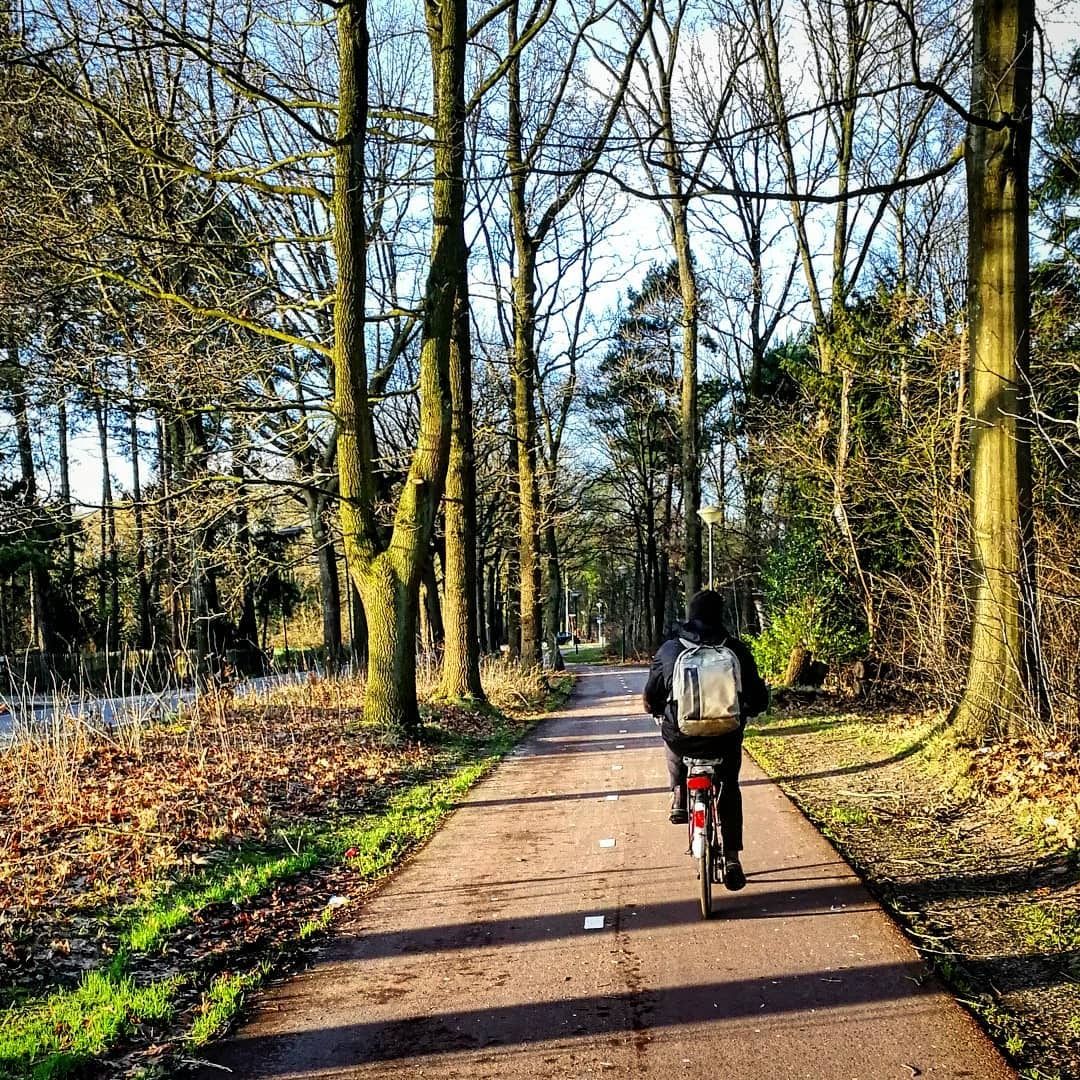
Try different physical and environmental conditions that separate your work time from your out-of-work time
Working remotely is a two-edged sword. It is as easy to get distracted with everything you have around you, as it is to get sucked into systematically overworking. Both of these are real threats to your productivity.
To me, having a clear separation of work time and off-work time is essential. I have a dedicated room that serves as my office. I have both a work computer and an off-work computer. I have a chair where I only sit when I’m working, and even use cooler light bulbs during my work hours.
Set boundaries
It is incredibly important to set up boundaries that help you keep your productivity up. This could mean defining rules with your family members, restricting your work schedule, defining break times.
My partner knows that when I have my headphones in the office, it means I am working and would rather not be interrupted. I make sure to take a 15 minutes break every hour and a half, stretch and make sure that I’m hydrated.
Invest in ergonomics
Starting to take care of the ergonomics of my work station was such a game changer for my health and well being. For example, I never saw the point of buying an expensive ergonomic chair until I actually tried one for a couple of days. The difference on how my back feels after a full day of work is astonishing.
A standing desk is also a great way of keeping your back healthy and getting some blood flowing in the legs to prevent health issues. It is unnatural for the human body to stay sitting for 8 hours a day. This pairs perfectly with the ergonomic chair, allowing you to switch back and forth during the day.
Take a break and go outside
For myself, getting out of the house every day is a key aspect in keeping me productive. It could be to go grab lunch at a restaurant, bring some food and eat in the park or even just get a coffee. This also gives you the opportunity to see other people and recharge before getting back to work.


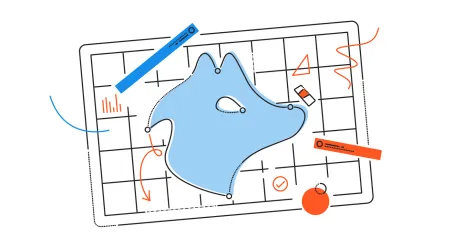
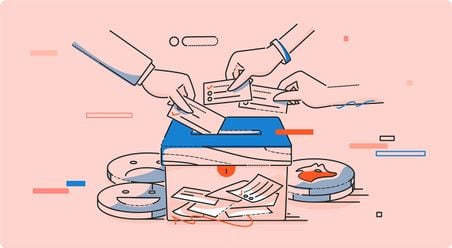
 Send cold emails with Hunter
Send cold emails with Hunter